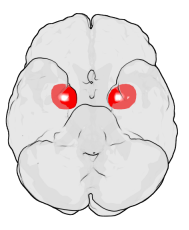
Ecological momentary assessment of temptations and lapses in non-daily smokers
Sign Up to like & getrecommendations! Published in 2020 at "Psychopharmacology"
DOI: 10.1007/s00213-020-05539-3
Abstract: Rationale Little is known about relapse among non-daily, intermittent smokers (ITS), who have difficulty quitting, despite a lack of dependence. Objectives To analyze situations associated with temptations to smoke and smoking lapses among ITS trying… read more here.
Keywords: ecological momentary; affective distress; temptations lapses; non daily ... See more keywords

Anterior insula activation during inhibition to smoking cues is associated with ability to maintain tobacco abstinence
Sign Up to like & getrecommendations! Published in 2018 at "Addictive Behaviors Reports"
DOI: 10.1016/j.abrep.2018.01.002
Abstract: Relapse to smoking after initial abstinence is a major clinical challenge with significant public health consequences. At the brain and behavioral level, those who relapse to tobacco smoking have both greater cue-reactivity and lower inhibitory… read more here.
Keywords: tobacco; abstinence; inhibitory control; activation ... See more keywords

P3 Event-Related Potential Reactivity to Smoking Cues: Relations With Craving, Tobacco Dependence, and Alcohol Sensitivity in Young Adult Smokers
Sign Up to like & getrecommendations! Published in 2017 at "Psychology of Addictive Behaviors"
DOI: 10.1037/adb0000233
Abstract: The current study tested whether the amplitude of the P3 event-related potential (ERP) elicited by smoking cues is (a) associated with the degree of self-reported craving reactivity, and (b) moderated by degree of tobacco dependence.… read more here.
Keywords: tobacco dependence; sensitivity; reactivity; alcohol ... See more keywords

Quitting starts in the brain: a randomized controlled trial of app-based mindfulness shows decreases in neural responses to smoking cues that predict reductions in smoking
Sign Up to like & getrecommendations! Published in 2019 at "Neuropsychopharmacology"
DOI: 10.1038/s41386-019-0403-y
Abstract: Current treatments for smoking yield suboptimal outcomes, partly because of an inability to reduce cue-induced smoking. Mindfulness training (MT) has shown preliminary efficacy for smoking cessation, yet its neurobiological target remains unknown. Our prior work… read more here.
Keywords: mindfulness; randomized controlled; pcc activity; app based ... See more keywords

Countering Craving with Disgust Images: Examining Nicotine Withdrawn Smokers’ Motivated Message Processing of Anti-Tobacco Public Service Announcements
Sign Up to like & getrecommendations! Published in 2017 at "Journal of Health Communication"
DOI: 10.1080/10810730.2016.1268222
Abstract: There is a lack of research examining whether smoking cues in anti-tobacco advertisements elicit cravings, or whether this effect is moderated by countervailing message attributes, such as disgusting images. Furthermore, no research has examined how… read more here.
Keywords: tobacco; message; processing; nicotine withdrawn ... See more keywords

Relationships Between Social Anxiety and Smoking-Specific Experiential Avoidance
Sign Up to like & getrecommendations! Published in 2017 at "Journal of Dual Diagnosis"
DOI: 10.1080/15504263.2016.1248310
Abstract: ABSTRACT Objectives: Although social anxiety is associated with higher prevalence of smoking and lower cessation rates, little is known about the underlying mechanisms of these relationships. Research suggests that socially anxious smokers have higher levels… read more here.
Keywords: anxiety; smoking specific; internal smoking; social anxiety ... See more keywords

Neural Responses to Smoking Cues in Schizophrenia
Sign Up to like & getrecommendations! Published in 2018 at "Schizophrenia Bulletin"
DOI: 10.1093/schbul/sbx085
Abstract: The high prevalence of nicotine dependence contributes to excess mortality in schizophrenia. Cue reactivity, or the encounter of drug-related cues or contexts, triggers craving, drug-seeking, and relapse. Prior functional magnetic resonance imaging (fMRI) research indicates… read more here.
Keywords: cue reactivity; neural responses; negative symptoms; reactivity ... See more keywords

Disentangling craving- and valence-related brain responses to smoking cues in individuals with nicotine use disorder.
Sign Up to like & getrecommendations! Published in 2021 at "Addiction biology"
DOI: 10.1111/adb.13083
Abstract: Tobacco smoking is one of the leading causes of preventable death and disease worldwide. Most smokers want to quit, but relapse rates are high. To improve current smoking cessation treatments, a better understanding of the… read more here.
Keywords: brain responses; related brain; valence; brain ... See more keywords

A Pilot Study and Ecological Model of Smoking Cues to Inform Mobile Health Strategies for Quitting Among Low-Income Smokers.
Sign Up to like & getrecommendations! Published in 2020 at "Health promotion practice"
DOI: 10.1177/1524839920942214
Abstract: One crucial factor that leads to disparities in smoking cessation between groups with higher and lower socioeconomic status is more prevalent socioenvironmental smoking cues in low-income communities. Little is known about how these cues influence… read more here.
Keywords: ecological model; income smokers; low income; health ... See more keywords